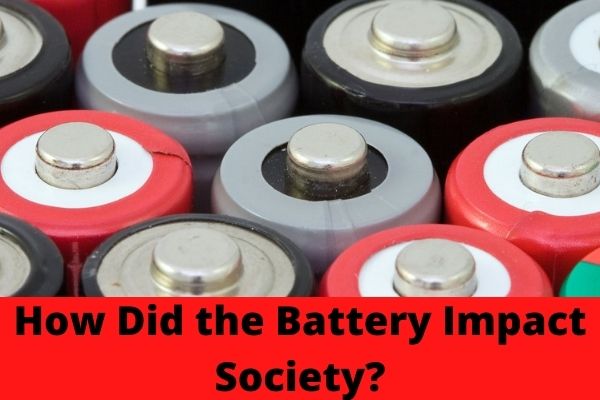Key Points:
- Rechargeable batteries are made of different compositions and are used for different applications.
- Based on the materials used for the battery, the recharging rate may be different.
- So, you should never charge a rechargeable battery with any random charger.
Rechargeable batteries are a sustainable alternative to regular standard batteries. They are a part of the revolution where less e-waste is encouraged to save the planet. However, it is sometimes a challenge to determine which charger works best for them.
So, can you charge rechargeable batteries with any charger?
Well, as not all batteries have the same chemical composition and electrical capacity, it is not wise to charge a rechargeable battery with any random charger. Using the wrong charger may damage the battery permanently and even may cause an explosion. That’s why it is recommended to use specific chargers for the rechargeable one.
This article comes with a detailed discussion on charging the rechargeable batteries correctly. So, let’s begin with it.
How Rechargeable Batteries Work?
Before discussing why you can’t use any random charger to recharge all rechargeable batteries, let us discuss how these work in general.
The basic principle of any cell is putting two materials known as “Anode” and “Cathode” of oppositely charged close together with separation by a barrier.
The anode tries to donate electrons to the cathode by passing through the barrier. This continuous flow of electrons from anode to cathode across the electrical circuit will generate electricity from the battery.
Now, in the case of rechargeable batteries, the flow can be reversed. This process will take back the electrons to the anode material again which we call recharging. The recharge rate is dependent on the quality of the materials within the rechargeable battery.
One important fact is that different rechargeable battery manufacturers use different combinations of materials to create electrical potential between the anode and cathode in the first place.
Different rechargeable batteries can be used for different purposes and on different scales. So, different materials are needed to be used. This is the reason why you need specific batteries for rechargeable batteries.
Types of Rechargeable Batteries
There are mainly two types of rechargeable batteries, namely liquid core and solid core rechargeable batteries. The liquid core batteries include 6V or 12V lead-acid batteries that are usually larger and dedicated for large appliances. The batteries can be overcharged up to a limit but if they are overcharged for long, the acid-filled cells may explode.
Solid core rechargeable batteries, on the other hand, are mostly used in smaller appliances such as electronics and electric cars, and watches. The batteries are smaller than liquid core batteries and are available in similar sizes to AA and AAA batteries.
Solid core batteries that are used in cellular phones and cars use ionized lithium. Other materials that include making solid core batteries are nickel and cadmium.
Each of the materials requires the different rate of charge to get the cells recharged. This is the main reason behind using specific chargers for each type of rechargeable battery.
Most of the rechargeable batteries carry their own suitable chargers with the package. You should always charge the batteries with their designated chargers to ensure their long-lasting performance.
Figuring Out the Right Charger for the Rechargeable Batteries
As said already, different materials are being used for different types of rechargeable batteries. So, you need to find a suitable charger for them. Fortunately, the materials that are used in the battery are labeled on the body of the battery so that you can easily choose a suitable one for them.
Most rechargeable batteries use nickel and cadmium as the main materials. Also, nickel with metal hydride and ionized lithium is used for many applications. They are the most commonly used materials that are used for rechargeable batteries.
Lithium-ion batteries are rather more powerful and used in highly sophisticated applications. The charger in turn also needs to have more protection as there may be a chance of explosion if overcharged. This type of charger includes a trickle charge mode and gets activated when a battery is fully charged.
Lithium-ion rechargeable batteries are therefore shouldn’t be ever used with regular NiCad or NiMh battery chargers. Apart from the difference in the charging rate, the charger won’t be able to deactivate the charger once the connected battery is fully charged. It may lead to serious damage in the end.
Frequently Asked Questions (FAQs):
Can You Overcharge Rechargeable Batteries?
No, you shouldn’t overcharge rechargeable batteries by any means. Disconnect the charger from the devices as soon as the batteries are fully charged.
Do Rechargeable Batteries Last As Long As Regular Batteries?
Most of the rechargeable batteries last longer than average alkaline batteries, especially within high-draining electronic devices. The NiMH batteries even last longer than other rechargeable batteries.
How Many Times Can You Recharge A Lithium-Ion Battery?
The life expectancy of the typical lithium-ion rechargeable batteries is about three years. You can charge them 300 to 500 times within their complete life cycles.
Can You Mix Different Brands Of Rechargeable Batteries?
It is not recommended not to mix different brands of rechargeable battery chargers. It will reduce their performance and longevity.
Final Words
So, can you charge rechargeable batteries with any charger?
The answer is a big “No” as it impacts the performance of the batteries and longevity badly. Rechargeable batteries of different compositions may behave differently when connected to a battery charger. So, always use a suitable one.
I hope this article helps you. If so, don’t forget to share it with your friends. It will be highly appreciable.
Related Posts:


